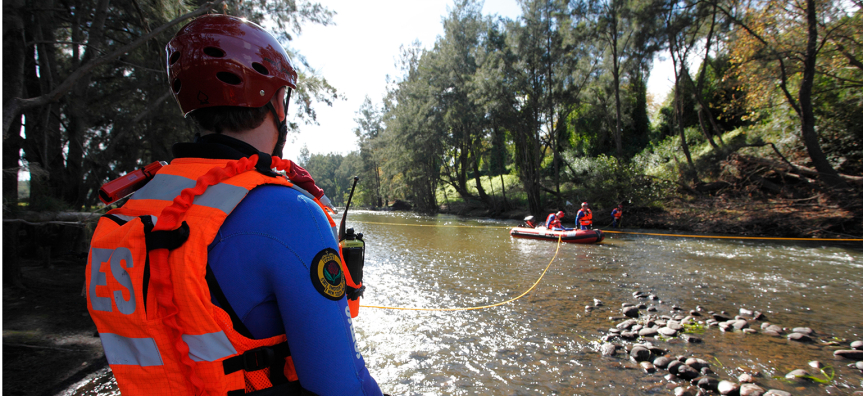
The lead agency for response to floods is the NSW SES
Living in a beautiful coastal area traversed by creeks and dotted with coastal lagoons comes with the risk of flooding. Northern Beaches Council continues to undertake a program of studies and investigations to identify the areas at risk of flooding and how this can be managed.
Know your Risk
Check if your property is in flood prone area on the hazards map
Technical information for flooding can be found on Council's Flood Studies page
Have a Plan
- Put your plan together using the SES Emergency Plans template. Share it with family, friends and neighbours, and review it annually or after a flood.
- Your Emergency Plan should answer all of these questions and more, take the time to sit and write it down. Do you:
- Know what you would do to protect your property?
- Know where all your important documents are? Insurance, passports etc.
- Know where you will go if your property floods?
- Know what you will take to keep you safe and warm?
- Know what you will do with your animals?
- Have neighbours, friends or family who may require assistance? Others may have trouble moving during a flood event due to mobility constraints, location or other issues. Consider how you can help others be prepared for a flood event.
- Know who to call to get help?
During a Flood
- Monitor rainfall and flood levels
- Use your Emergency Plan to decide on the next course of action
- Follow the advice from Emergency Services
- Protect yourself, your family, pets and any vulnerable neighbours
- If it is safe to do so, protect your property:
- Move cars to higher ground
- Stack possessions of importance off the floor and raise electrical equipment
- Secure objects that are likely to float
- Relocate waste containers, chemicals and poisons well above floor level
- Stay connected:
- Keep listening to ABC Radio 702AM on a battery-powered analogue radio, listen online or via the ABC Radio app for updates and instructions
- Keep in contact with neighbours, friends and family to make sure everyone is safe
- Monitor your mobile phone for further information and warnings from the NSW SES
- If your plan is to evacuate or you receive a NSW SES Evacuation Order, act as early as possible as roads may become congested or be closed.
- Check for road closures via Live Traffic.
- Never drive, walk, swim or play in floodwater
- If you are trapped by rising floodwater, seek refuge in the highest part of a sturdy building and call for help.
In a life-threatening emergency call Triple Zero (000)
For emergency help in floods call NSW SES on 132 500
After a flood
- Stay tuned to ABC Radio 702AM on a battery-powered analogue radio, listen online or via the ABC Radio app for official advice and warnings.
- Don't return home until Emergency Services have said it is safe to do so.
- Don't allow children to play in or near floodwater.
- Avoid entering floodwater — it is dangerous.
- If you must enter floodwaters, wear solid shoes and use a stick to check the depth and current.
- Stay away from drains, culverts and water that is knee-deep or higher.
- Don't turn on your gas or electricity until it has been checked by a professional; the same goes for appliances.
- Don't eat food which has been in floodwater.
- Boil tap water until supplies have been declared safe.
- Watch for trapped animals.
- Beware of fallen powerlines.
- Take lots of photos of all damage for insurance claims.
- Let your family and friends know where you are.
- In case you become separated from loved ones during an emergency, Red Cross manages Register.Find.Reunite, a national registration and enquiry service. When the service is activated, people can register at redcross.org.au or in person at an evacuation centre.
- You can also use the website if you are unable to contact a loved one who may have been affected.
- If you have been affected by floods and require assistance, contact Disaster Welfare Services on 1800 018 444.
Emergency services
Police, Fire, Ambulance, Rescue (for life-threatening emergencies)
Phone: 000
NSW State Emergency Service (SES) (for storm damage, flooding, disasters and rescue)
Phone: 132 500
NSW Rural Fire Service (for bush fires)
Phone: 1800 679 737
Fire and Rescue NSW (for urban or domestic house fires)
Phone: 9265 2999
Disaster Welfare Services Assistance Line
Phone: 1800 018 444
